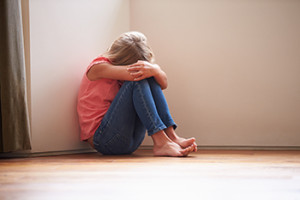- Calls to this hotline are currently being directed to Within Health or Eating Disorder Solutions
- Representatives are standing by 24/7 to help answer your questions
- All calls are confidential and HIPAA compliant
- There is no obligation or cost to call
- Eating Disorder Hope does not receive any commissions or fees dependent upon which provider you select
- Additional treatment providers are located on our directory or samhsa.gov
Sexual Abuse

Contributor: Crystal Karges, MS, RDN, IBCLC, Special Projects Coordinator at Eating Disorder Hope/Addiction Hope
What is Sexual Abuse?
Any form of sexual abuse is a serious infringement and violation of a person’s body, mind, and spirit. Sexual violations can severely disrupt a person’s being and ability to function, as this can create both short and long term effects for the victim who has suffered the abuse.
According to the American Psychological Association, sexual abuse can be defined as unwanted sexual activity, with perpetrators using force, making threats, or taking advantage of victims not able to give consent1.
Immediately following an episode of sexual abuse, a victim may experience episodes of distress, which can manifest physically and emotionally.Long-term consequences of sexual addiction can include the development of mental illnesses, including:
- Anxiety disorders
- Post-traumatic stress disorder
- Depression
- Eating disorders, such as anorexia, bulimia, or binge eating disorder
Reaching Out
If you or someone you love has been impacted by sexual abuse, reaching out for help and support is essential to begin the healing process. You may feel ashamed or guilty for what has happened to you, and it is important to understand that this is not your fault.
You may even feel fearful of speaking out about what has happened to you or afraid to share about your experience with others.
While the experience of sexual abuse can trigger a cascade of thoughts and emotions, being able to process these thoughts and feelings can lead to healing from any traumatic event. As a victim of sexual abuse, you may even be suffering with symptoms that interfere with your ability to function on a daily basis.
Getting To The Root
Effectively dealing with the root of sexual abuse, through psychotherapy, counseling, and therapeutic treatment, will help overcome the pain that one may be dealing with.
Because of the nature of how sexual abuse violates a person’s body and mind, the chances of developing an eating disorder are remarkably increased. While not everyone who has suffered with sexual abuse will develop an eating disorder, it is important to be aware of the increased risk that occurs for eating disorder development.
If you or someone you love has endured sexual abuse and is struggling with an eating disorder, seek the assistance and counsel of a specialist, who can guide you through the journey of healing and recovery.
Community Discussion – Share your thoughts here!
The road to healing from sexual abuse can be painful and difficult. If you have recovered from sexual abuse, what encouragement might you offer to someone else who is walking this journey?
References:
- “Sexual Abuse”, American Psychological Association, http://www.apa.org/topics/sexual-abuse/ Accessed 22 April 2015.
Last Updated & Reviewed By: Jacquelyn Ekern, MS, LPC on May 7th, 2015
Published on EatingDisorderHope.com

